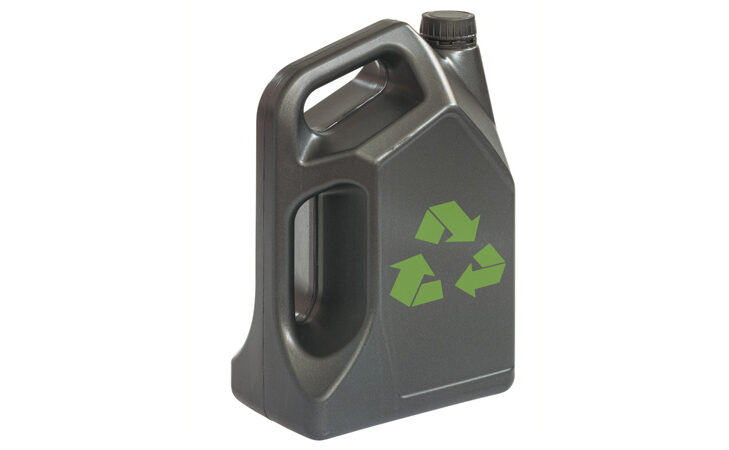
NZ lubricant industry looks to end waste from spent motor oil plastic bottles
Single-use plastic refers to plastic packaging intended for use only once before it is disposed of or recycled. The use of disposable plastics is already a well-publicised environmental issue and one that is continuing to gather momentum. Every year, we produce hundreds of millions of tonnes of plastic, much of which are not or cannot be recycled. This waste is infiltrating our oceans, our soil, and can eventually break down into toxic chemicals that can make their way into our food and water supply.
When you mention single-use plastics, plastic bags, drinking straws, shampoo bottles, beverage and food packaging immediately spring to mind. However, lubricant and grease containers pose a similar, if not greater, threat. Oil containers can be considered hazardous and may be problematic to recycle, owing to the left-over product residue. A small proportion is recycled, but the majority end up as landfill.
In New Zealand (NZ), a country of only five million inhabitants, an estimated seven million (20 liters and under) lubricant and grease containers, plus an unknown quantity of 200-liter drums, are sent to landfills each year. This equates to approximately 1,400 tonnes of contaminated waste annually.
The NZ lubricant industry, led by local company Z Energy, are taking a leadership stance on this global issue with the establishment of the Waste Lubricant Container Product Stewardship Scheme. The scheme will explore the complex issue of recycling lubricant containers with a view to maximizing the number of containers diverted from landfill and reducing the need for virgin resin imports into NZ. The group intends to support the development of end-use markets as part of a wider goal of transitioning the lubricant industry toward a circular economy model.

In early 2018, the working group approached Hawke’s Bay-based company 3R Group, an independent third party with expertise in product stewardship, to facilitate the scheme. 3R Group will assume overall project management of the industry working group’s work programme including drawing on industry best practice in the development of a stewardship scheme to tackle contaminated plastic and ensuring that the design of the scheme is inclusive and meet the needs of the whole supply chain.
“Considering that most lubricant containers are manufactured from high-density polyethylene or metal, both highly recyclable after pre-treatment, this provides the ideal opportunity to capture these resources onshore,” Adele Rose, chief executive of 3R Group said in a statement.
The Waste Lubricant Container Working Group is open to the entire NZ lubricant industry and has already found support from well-known local and international brands including Aegis Oil Co., Allied Lubricants Ltd (HWR), Castrol NZ, Farmlands Co-Operative Society Ltd (Gulf Oil), Lubricants NZ (Vertex & Elf), Oil Intel Ltd (Total Lubricants) and Penrite Oil NZ Ltd. Gerri Ward, sustainability manager at Z Energy, speaking with Radio NZ, NZ’s public service radio broadcaster and a Crown entity, says additional brands are expected to join in the coming months.
The stewardship scheme development is an initial three-year program, and is looking to uncover a “local, onshore, long-term, sustainable solution to recycling,” says Ward. Participants in the working group are asked to commit NZD 10,000 (USD6,800) to cover the design of the scheme. The group is seeking additional funding to help cover costs of implementation through the Ministry for the Environment Waste Minimisation Fund. Ward suggests companies participating in the product stewardship scheme have a “vested interest in finding a solution, including how to take back and dispose of that product in a way that it isn’t being done at the moment.” Most brands are already supportive of the idea of an advanced disposal fee, which would be paid at the time of distribution.

Shell exited the NZ fuel distribution market in April 2010. Its operations were purchased by Infratil and NZ Super and rebranded in 2011 as Z Energy. “At Z, we know we’re a real part of the problem, so it’s a no-brainer that we should be a real part of the solution,” says Ward. To make good on this stand means we need to take action, she says. A quick scan of Z Energy’s operations and it seems the organization is beginning to ‘walk the walk’ citing significant reductions in landfill year-on-year, a 30% reduction in carbon emissions, with unavoidable emissions offset, as well as a shift to more efficient electricity consumption compared with a 2012 baseline. The company is now calling on all importers and distributors in the NZ lubricant market to join them to tackle what is a big problem, and one that isn’t going away.
Recycling is a contentious issue in NZ, particularly since a recent ban on 24 types of waste entering China. Until recently, NZ’s plastic and waste was shipped to China for recycling and disposal. China’s environmental clampdown means NZ now needs to find a new home for NZD 21 million (USD 14.2 million) worth of waste – including NZD 8.2 million (USD 5.5 million) of plastic. A document sent by China to the World Trade Organisation last year confirmed restrictions were necessary to protect its population’s health and safety from increasingly dirty and hazardous waste. China no longer wants to be the “dumping ground” for the world’s waste it seems.
Ward theorises that there is “money in waste” — the fourth biggest industry in the world. But NZ needs “someone to innovate.” She suggests that lubricant packaging offers volume and consistency of supply to support a local recycling initiative. The Z Energy representative confirmed the group is open to the prospect of a joint venture and will continue to assess all options to minimise lubricant packaging waste’s environmental footprint.
Perhaps the working group needn’t look too far afield. Sweden is regularly touted as a global leader in the management of waste. Commentators claim 99% of household waste is recycled in some form or another, up from 38% in 1975. The Nordic country genuinely recycles what they can, and the remainder is burned in plants that convert it into energy for a nationwide heating network. Sweden’s expertise and efficiency in waste treatment, and the relatively low cost of waste as a fuel means it imports millions of tonnes of waste from other countries.
Though, critics of the scheme are quick to point out that incinerating is not recycling, and that the focus should be on greater responsibility for the products and packaging that hit the market in the first instance.







